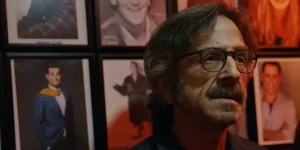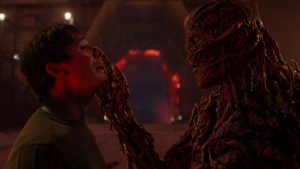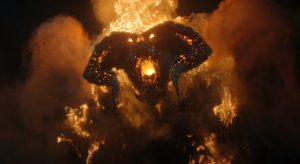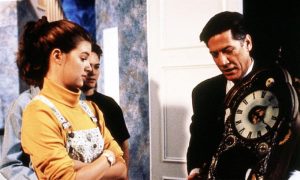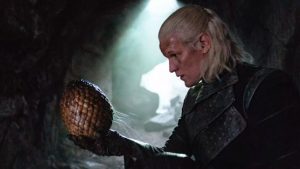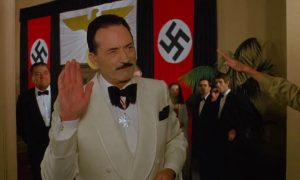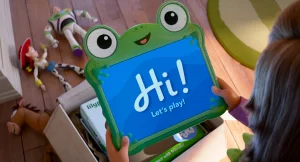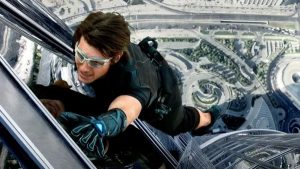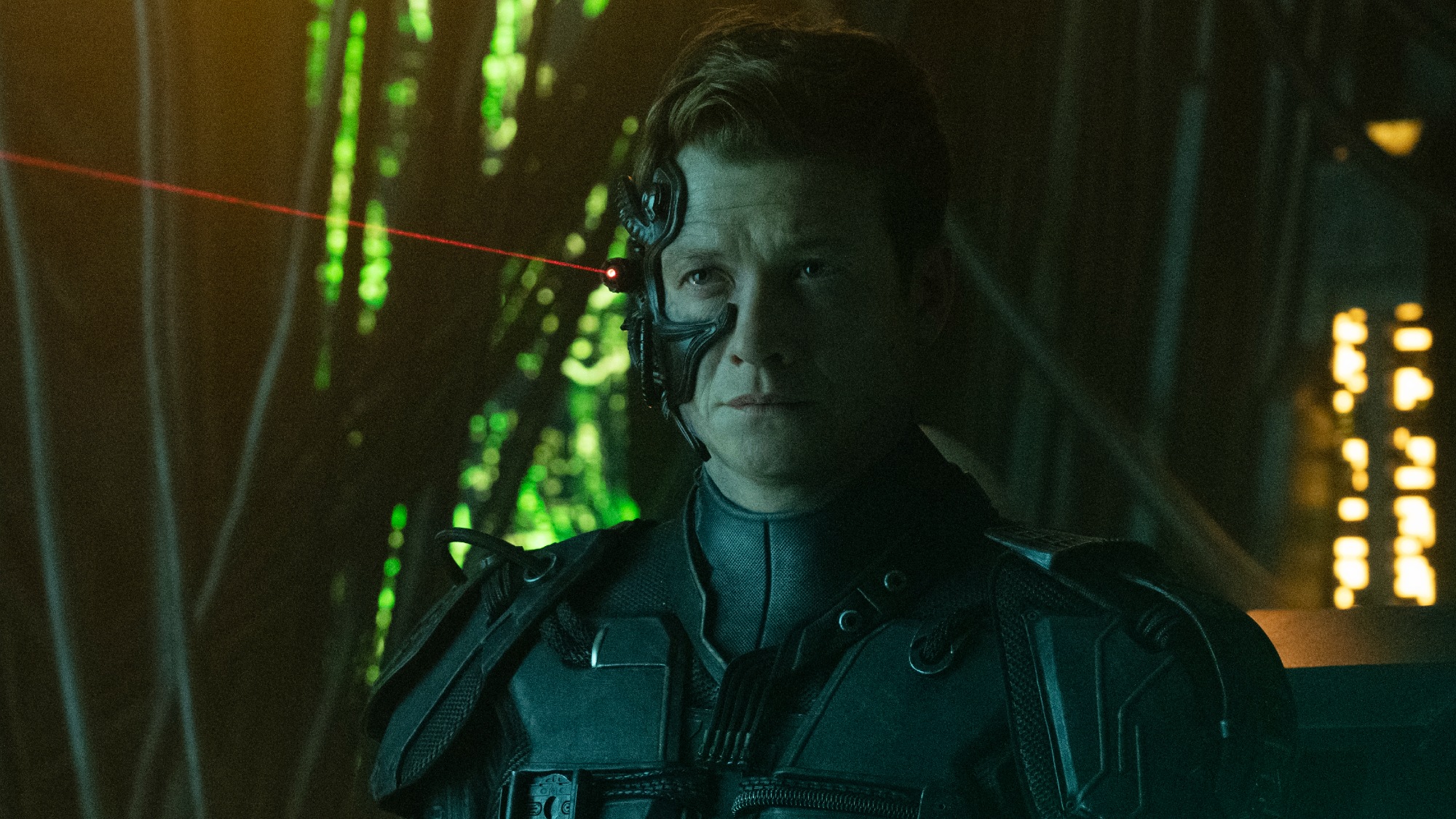
Starfleet is nothing if not tolerant. Star Trek captains are known for pontificating about what humans can learn from other cultures, and what they owe the other species they come across. They are not known for announcing: “Now this is how I prefer the Borg. In pieces!”
Said by Voyager‘s Kathryn Janeway (Kate Mulgrew), the statement hints at the barrier that Borg society seems to throw up across Star Trek shows. Wars aside, Starfleet captains don’t seem to want to even try to understand the Borg. It’s a tension that’s rooted in a huge culture clash, one that Starfleet can’t dismantle without dismantling its own ideological scaffolding.
In The Next Generation episode “I, Borg,” Jean-Luc Picard is happy to introduce a virus into the Borg, even though he’d balk at the thought of bringing such destruction to other races. He only backs off when he is convinced his Borg prisoner, Hugh, has become an individual―that is to say, no longer fully Borg. Captain Picard’s stance is perhaps understandable; he is carrying trauma from being transformed into Locutus of Borg (his badass Laser eyes apparently providing little comfort). But it’s Captain Janeway that seems to particularly hate them.
When former Borg drone Seven of Nine (Jeri Ryan) comes aboard, Janeway ignores her initial wish to return to the Collective, her objection to having her (admittedly deadly) implants removed, and her own explanations of what it is to be Borg. Janeway insists, “I’m giving you freedom,” and dismisses Seven’s wish to leave with the Borg: “You lost the ability to make a rational choice the moment you were assimilated.”
When Seven is told “your mind is independent now,” she replies, “I don’t want that life.” Janeway, as ever, ignores her, confident that being human is the best way to be.
It’s true the Borg’s foreign policy is more of a reign of terror, forcibly assimilating members of other species, and attacking Janeway’s crew. But the Borg are hardly the first species to have hostile relations with Starfleet, and Janeway harbors a disdain for their internal society, too. A clue as to why is Janeway’s idolization of The Original Series’ Captain Kirk. Waxing lyrical about the Wild West days of Kirk and co., she says: “Space must have seemed a whole lot bigger back then… I have to admit, I would have loved to ride shotgun at least once with a group of officers like that.”
Humanity’s mythology is populated by cowboy heroes, and it’s no different in Star Trek. Kirk himself is an obvious example, with his maverick command, and Janeway isn’t the only one starry-eyed. In the Deep Space Nine episode “Trials and Tribble-ations,” Dax, having gone back to Kirk’s time, is excited to see “one of the most famous men in Starfleet history.” Captain Sisko, having also time-traveled, admits wanting to shake Kirk’s hand, and Worf says meeting him would be an “honor.”
The hero worship isn’t confined to Kirk. Janeway’s crewman Paris plays at being the intergalactic swashbuckler Captain Proton on the Holodeck. In Deep Space Nine‘s Holosuites, meanwhile, O’Brien and Bashir act out WWII’s iconic Battle of Britain, a few souls against the might of the Axis. TNG’s own Picard has a romantic family history of sea captains and Mars colonizers, which he regards with wistful pride. The very status captains hold in the world of the show and among fans are evidence of a kind of myth-making which revolves around exceptional individuals.
It also suggests Starfleet, infused as it is with Earth culture, is still dogged by a historical hangover. Its ideals, even the “final frontier” tagline, hark back to colonial explorers like Christopher Columbus and the suspiciously Kirk-sounding James Cook―perhaps further still, to epic poetry’s great adventurers like Homer’s Odysseus and Virgil’s Aeneas. Starfleet’s heroes are the successors of these men, the latest in a line of individuals that societies can tie their identities to.
But it’s certainly not a kind of pride that the Borg would share. While Star Trek‘s captains dream of the named men who first conquered the Earth’s oceans or took humanity to warp speed, the Borg value the group over the individual. In fact, they don’t really believe in the individual; when they do think of particular drones, the focus is on what their duty and role is in their society.
The Borg exist to serve the Collective, but they also are the Collective, equal participants (messiness over the Borg Queen’s role aside). Their knowledge, thoughts, and life experiences are brought to the group and shared with everyone. In a hivemind, there are no heroes. The ideal Borg is anonymous, one link in a chain. An exceptional Borg is not Borg by definition.
It’s a different view on identity, ethics, and purpose than Starfleet’s. But that doesn’t mean it’s objectively wrong. In fact, it’s pretty close to what Plato argues makes up an ideal society in Republic, the Ancient Greek philosopher’s dual treatise on individual morals and the morals of a state.
In simplified terms, Plato partly argues that the way a person can be both moral and happy is to fulfill their specific societal role. Robin Waterfield’s translation of Republic proposes giving “every single person just one job―the one for which he was naturally suited, and which he was to work all his life.” In this way “their lives will be communal” and “every person is not a plurality but a unity, and thus… the community as a whole develops as a unity, not a plurality.”
Seven of Nine, at least at the beginning of her Voyager stint, sees things the same way.
Seven may have originally been kidnapped by the Borg, and her feelings do change later on, but initially she feels that their world is the world in which she belongs. Her place as a drone in the Collective gives her a sense of purpose, guides her ethics, and makes her happy. Even Janeway concedes the Borg have a “harmony of purpose and thought.” But that just won’t mesh with Starfleet captains’ identities ― their cultural need to build their own stories around adventurers, and orbit them like planets around stars.
Star Trek shows us a dazzlingly bright future for humanity―one in which we have eradicated money, poverty, want, and intra-human war. But it also shows a 24th century in which humanity has yet to move past its own myths. And if that stops it bridging gaps of understanding with radically different cultures, that’s a tragedy.
The post Star Trek: The Reason Starfleet Will Never Truly Understand the Borg appeared first on Den of Geek.


